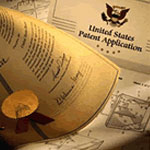 44 law, economics, and business professors filed an amicus brief yesterday in support of Lexmark International in its Supreme Court case against Impression Products. The professors argue that although patent exhaustion provides the baseline rule for sales of a patented product by a patent owner, parties should be free to contract around the baseline rule in their business dealings.
44 law, economics, and business professors filed an amicus brief yesterday in support of Lexmark International in its Supreme Court case against Impression Products. The professors argue that although patent exhaustion provides the baseline rule for sales of a patented product by a patent owner, parties should be free to contract around the baseline rule in their business dealings.
The patent exhaustion doctrine states that once a patent owner makes an authorized sale of a patented product, the patent owner cannot sue downstream users of that particular product for infringement. This is a sensible default rule that applies in most cases. At issue in the case is whether parties can contract around the default rule.
The professors explain that permitting parties to contract around the default exhaustion rule is beneficial for everyone: patent owners, purchasers, distributors, and consumers. Making the exhaustion rule mandatory would do more harm than good. In particular, it would limit the efficient dissemination of new technologies and would harm new small businesses that could function as intermediaries in the supply chain. Making patent exhaustion the presumptive rule, but allowing parties to change it through contract, makes more sense from an economic standpoint.
A mandatory patent exhaustion rule requires patent owners to extract all patent-related profit in the first transaction and will tend to increase the price of patented products by “arbitrarily inflating the royalty paid by the initial purchaser.” Allowing the parties to contract around the rule—so that the patent is enforceable against downstream purchasers—will distribute costs and allow all parties to find the most efficient way of making, distributing, and selling the patented good. Furthermore, contrary to the claims of several critics, allowing parties to contract around exhaustion is perfectly compatible with common principles of contract and antitrust law.
CPIP supported the filing of the brief. The brief was authored by Professors Ted Sichelman and Jonathan Barnett, who CPIP has been honored to include as Distinguished Senior Commentators in our Thomas Edison Innovation Fellowship program. CPIP Co-Founders Adam Mossoff and Mark Schultz, along with several CPIP Senior Scholars and current and former Edison Fellows, also joined the brief.

